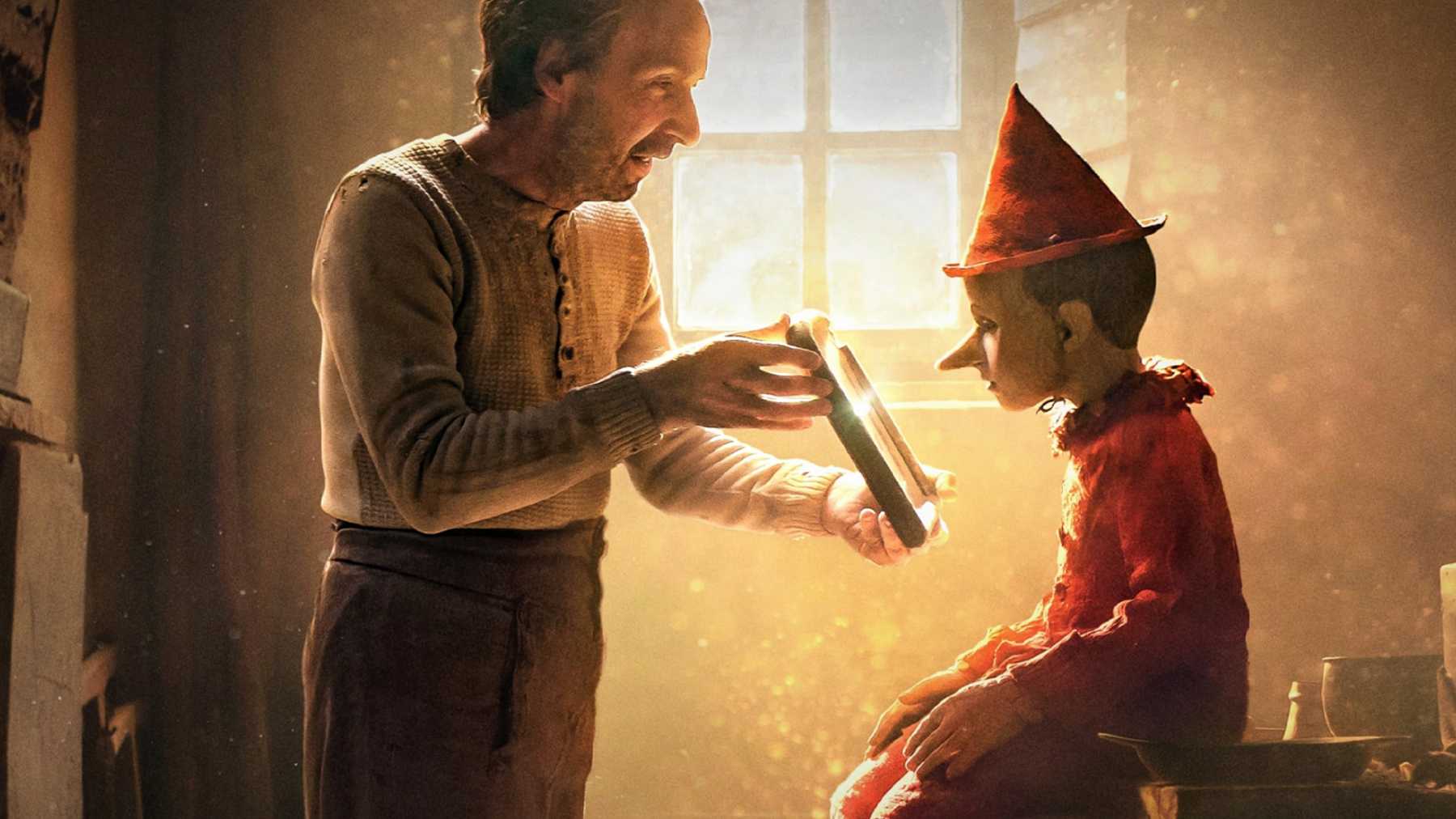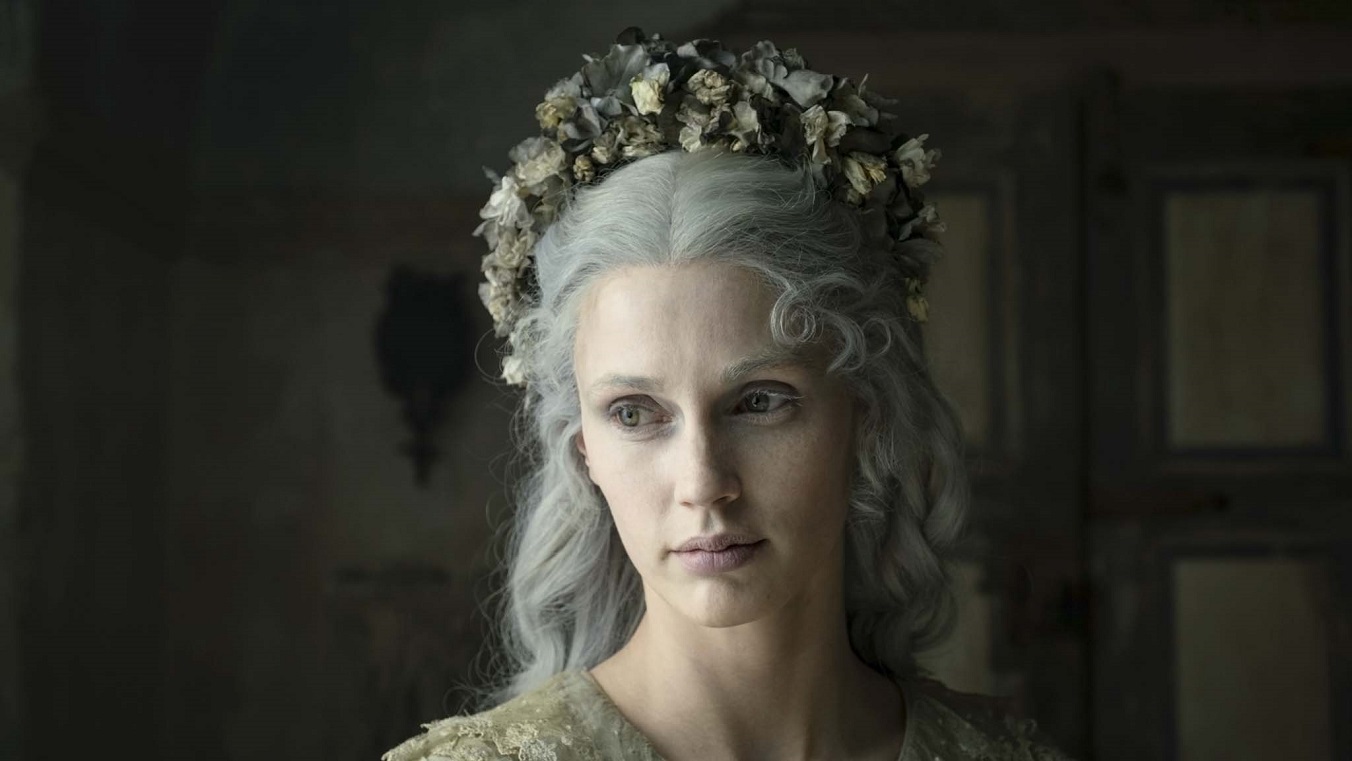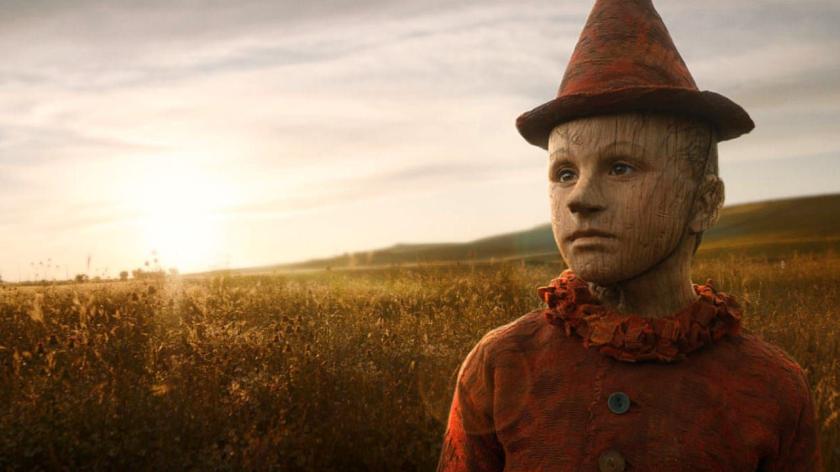This seems a perfect project for Matteo Garrone, a director who has found new ways to conjure old Italian dreams, and invests even his most grimly realistic films with fairy tale logic and wonder. Carlo Collodi’s 1883 story is here returned to its local time and place, as Pinocchio’s picaresque journey of experience unfolds in a deliberately traditional, lovingly crafted children’s film.
Roberto Benigni’s Geppetto, pictured below, adds Spielbergian sentiment and expert comic business to early scenes, and touching frailty later. Garrone’s two best-known features, the sociological gangster epic Gomorrah and grisly fairy story anthology Tale of Tales, are meanwhile enmeshed in Pinocchio. As the wooden boy, Federico Ielapi is an impetuous urchin, ripe for Mafia plucking in later times. In the dusty fields and faded stone buildings of this eternal, rustic Italy, the bulbous-eyed Fox instead tempts with sweet lies, a chimp judge makes innocence a crime and poverty drags at the soul, even for optimistic Geppetto.
 Pinocchio finds morality is the best defence amidst traps and tricksters, and pockets of kindness. In a comprehensive litany of social ills recalling The Wire, education is violently oppressive, explaining the temptation of the Coachman’s promised Land of Fun to a bad boy Pinocchio befriends: “There are no rules or masters. You just have fun and that’s it.” Painful metamorphosis into donkey slaves ensues, proving the Fairy’s emphasis on schooling, however imperfect. Again the modern fates of Camorra-ensnared children peak through the baroque trappings, the fatalistic cycles of Italian life turning this fairy tale’s cogs.
Pinocchio finds morality is the best defence amidst traps and tricksters, and pockets of kindness. In a comprehensive litany of social ills recalling The Wire, education is violently oppressive, explaining the temptation of the Coachman’s promised Land of Fun to a bad boy Pinocchio befriends: “There are no rules or masters. You just have fun and that’s it.” Painful metamorphosis into donkey slaves ensues, proving the Fairy’s emphasis on schooling, however imperfect. Again the modern fates of Camorra-ensnared children peak through the baroque trappings, the fatalistic cycles of Italian life turning this fairy tale’s cogs.
But weird wonders also crowd in: the string-tethered wooden tribe of the puppet theatre, caged by an unreliably sentimental Fagin type, and the spectral Fairy with the Turquoise Hair (Marine Vacht, pictured below), a stern guardian served by a snail. Characters are framed in widescreen, long-shot silhouette like Leone Westerns, and Dario Marianelli’s music of string and sighing harmonies is Morricone-esque. Dimitri Capuani’s production design surrounds Pinocchio with decaying splendour, with the Fairy living a vestigial aristocrat’s life. But it’s the way her cat coachman seems to evaporate in a forest’s morning haze, or a school of fish spirit Pinocchio away, that conjures moments of rapturous magic. Garrone’s unhurried pacing lets this dissipate at times, lingering on scenes to little purpose, as if spending time in this strange world should be enough.
 Relying on make-up over CGI (much as Guillermo del Toro’s much delayed version will use stop-motion animation) means that world feels walked in, and pays real dividends with Pinocchio, whose lovingly carpenter-smoothed skin can’t hide the play of inexperienced cruelty, shock and bravery across Ielapi’s face.
Relying on make-up over CGI (much as Guillermo del Toro’s much delayed version will use stop-motion animation) means that world feels walked in, and pays real dividends with Pinocchio, whose lovingly carpenter-smoothed skin can’t hide the play of inexperienced cruelty, shock and bravery across Ielapi’s face.
Pinocchio’s resilient survival lets him to bloom into a decisive actor at the last, rescuing Geppetto from a shark’s belly, and recognising and mocking enemies he once thought “amici”. This old-school morality is eased by the worldly grit requiring it, and the Fairy’s redemptive magic. Garrone’s steady eye for the bizarre and ironic ensures an engrossing spectacle to spark children’s imaginations, in a world adults will wearily vouch for.















Add comment